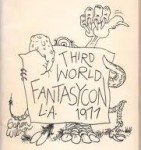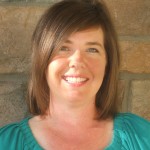 Worldcon took place in Reno just a few weeks ago. (I’m surprised I haven’t heard anything about it from the attendees. Drop us a note if you would.) Comic-Con San Diego was in July, Dragon*Con is this weekend, and World Fantasy Convention is next month. Those are some of the larger conventions. There are other smaller conventions I’m fond of such as Life the Universe and Everything, Comic-Con Phoenix, and Conduit-from which I have fond memories of being soundly beaten in a game of Magic: The Gathering by Brandon Sanderson. Then, there are the local conventions: Leprecon, Coppercon, and TusCon to name a few in Arizona. Add to those, the writing conferences and workshops available all over the country: Southwest Writers Conference, Superstars Writing Seminars, Dave Wolverton’s many wonderful workshops, Clarion and Clarion West, and the list goes on and on. I could easily have named dozens upon dozens and, for one reason or another, they’re all good!
Worldcon took place in Reno just a few weeks ago. (I’m surprised I haven’t heard anything about it from the attendees. Drop us a note if you would.) Comic-Con San Diego was in July, Dragon*Con is this weekend, and World Fantasy Convention is next month. Those are some of the larger conventions. There are other smaller conventions I’m fond of such as Life the Universe and Everything, Comic-Con Phoenix, and Conduit-from which I have fond memories of being soundly beaten in a game of Magic: The Gathering by Brandon Sanderson. Then, there are the local conventions: Leprecon, Coppercon, and TusCon to name a few in Arizona. Add to those, the writing conferences and workshops available all over the country: Southwest Writers Conference, Superstars Writing Seminars, Dave Wolverton’s many wonderful workshops, Clarion and Clarion West, and the list goes on and on. I could easily have named dozens upon dozens and, for one reason or another, they’re all good!
So how do we choose? We want to go to the bigger ones for the chance to hear from and associate with well-known authors, agents, editors, publishers and the numerous fans. I attended World Fantasy Convention two years ago and found a critique partner, met and received advice from a top-notch agent, gained a mentor, witnessed bad and good pitches by aspiring authors, listened to some great panels, and made wonderful friends. If you can possibly afford to go to one of these, do it!
Okay, so if we’re meeting the big wigs at the big conferences, why go to the small ones? At LepreCon last May I met and chatted with one of the major editors of my favorite publishing house. Did I pitch? No. Did she show interest in my work? No. But when I get an agent, I can meet this editor again and have a basis for future conversation. Even if you’re self-publishing, this is where you’ll find your local fan base. It’s a great opportunity to connect with like-minded individuals from your own area.
Workshops and Conferences. I have to be honest, I’ve never been to a writing conference, but I’ve heard they’re wonderful. One of my dear friends and a well-published author found her agent at a conference. And there are oodles of classes to choose from that focus exclusively on craft. A workshop is similar, sometimes more expensive, but often more one on one. I’ve made some of my best writing friends, many of whom are on this blog, from writers seminars and conferences. These are the fellow writers that will root for you, be beta readers for you, and motivate you. Every workshop I’ve attended has not only been worth the money for the workshop, it’s been priceless for the friendships made.
If so many of them are worthwhile, how to decide? I don’t know about you, but I can’t afford them all… in money or time. So I try to use the rules of socialization I learned as a child; be inclusive and take turns. So, a big con, a favored con, some small cons and a workshop. Too much? Yes. It’s what I attempt, but it isn’t what I achieve.
I look at what I’ve attended, what I want to attend, what has worked best, and what I haven’t tried yet. Then I figure out how much I can spend and choose what I can manage next. I try to take into consideration the time I won’t be writing, and the distance I have to travel. But I always work toward attending something, because sitting around and writing is only part of the equation. We have to get out and connect with people. After all, isn’t that what writing is really about, people? We may be reclusive hermits, but we write stories that connect with humanity. So get out there and Con.
I mean that in the positive sense, not in any way connected to criminal activity. 🙂



